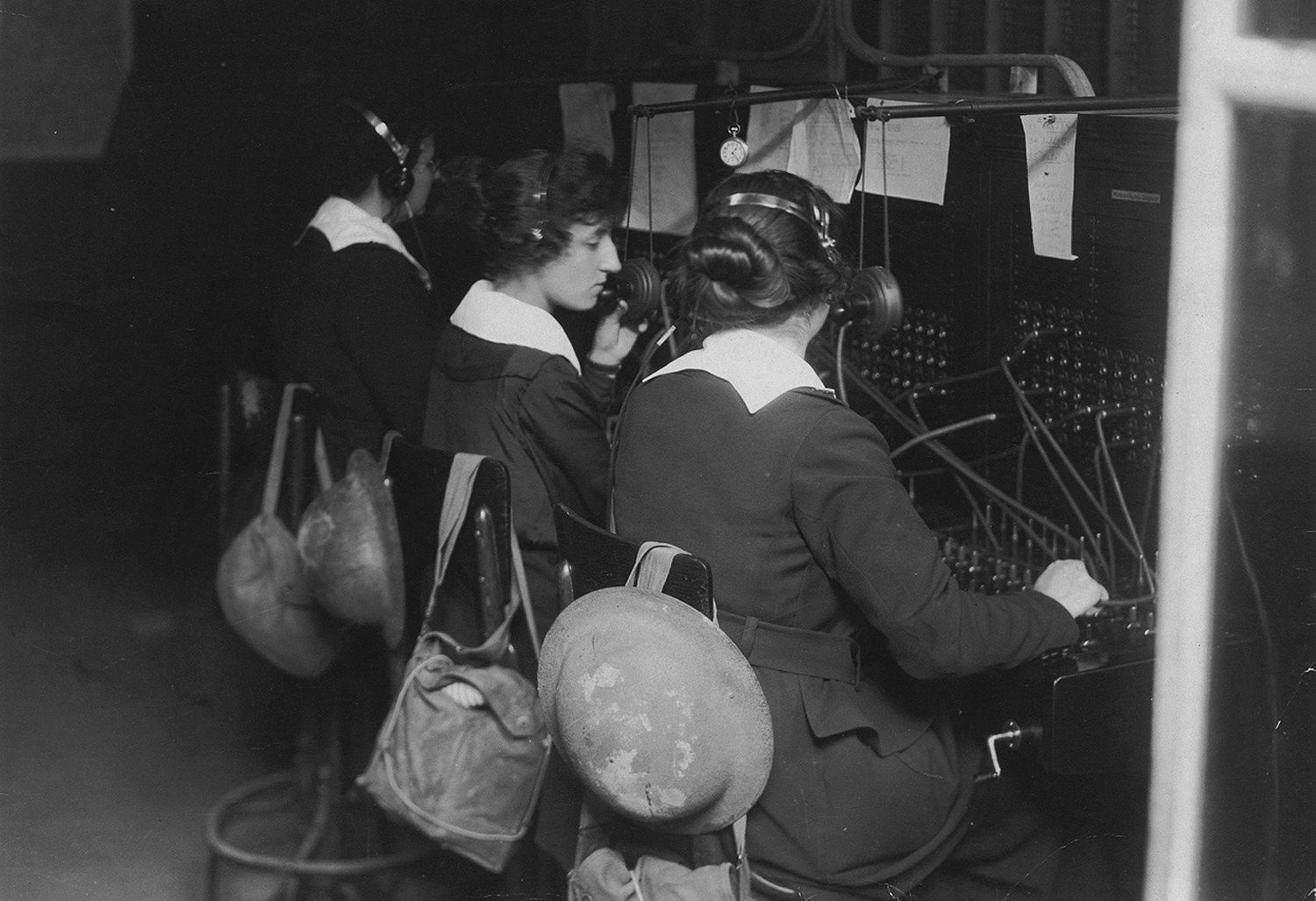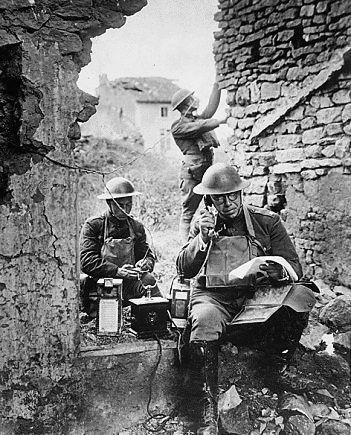Authors:
Historic Era: Era 7: The Emergence of Modern America (1890-1930)
Historic Theme:
Subject:
Fall 2018 - World War I Special Issue | Volume 63, Issue 3


Authors:
Historic Era: Era 7: The Emergence of Modern America (1890-1930)
Historic Theme:
Subject:
Fall 2018 - World War I Special Issue | Volume 63, Issue 3
The Hello Girls: America’s First Women Soldiers, by Elizabeth Cobbs (Harvard University Press)
The United States was tragically unprepared for World War I. Woodrow Wilson's slogan for re-election in 1916 had been “He kept us out of war,” which most Americans endorsed at the time. But, when war was finally declared war on April 2, 1917, the isolationist attitude would mean that American armed forces were undermanned and ill-equipped. The European powers, on the other hand, had developed advanced weaponry — artillery, tanks, machine guns, and airplanes. It would take the Americans time to catch up.

Communications was the one area in which the U.S. led the world, with an estimated 70% of all telephones found there. In 1915, forty years after Alexander Graham Bell invented the telephone, he spoke across the continent in a ceremonial call to his old colleague, Thomas Watson, in San Francisco to inaugurate the first transcontinental telephone line. It was a remarkable achievement, allowing the speaker's voice call to zig-zag across the country through countless local exchanges stitched together to carry a single transmission. Newly invented repeaters amplified the faint telephone signal enough for it to reach up and over the heights of the Rocky Mountains.
Telephones also revolutionized warfare. Soldiers could fairly easily run a telephone line across fields to connect forward units with headquarters. Commanders could receive up-to-the-minute news, communicate orders, and request supplies from depots that might be hundreds of miles away. The primitive radios at the time could not yet carry voice transmissions, only Morse code. Radio signals reached only a few miles on land, and could easily be intercepted by the enemy. So, telephones became the critical means for command and control for the U.S. Army.

It was soon discovered, however, that the young men in the Signal Corps were generally unable to handle the complex multi-tasking required of a switchboard operator. The Bell companies had discovered soon after the first telephone exchanges became operational in the 1880s that women made the more capable operators and exchange supervisors than men. They were also more patient and able to calm down customers frustrated with the challenges of primitive telephone communication. The relatively well-paid employment of tens of thousands of women across the